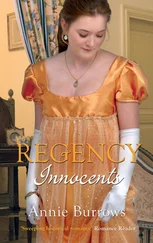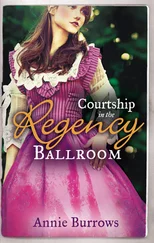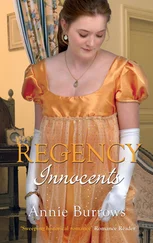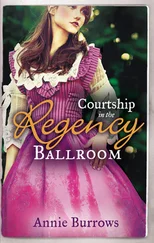Today, she inspected everything, watched the shuttles flying across the looms for several minutes, spoke to the mill manager about production schedules, dealt with her correspondence and gave a few orders, something she did almost every day of her life. Though she appeared to be her usual self, there was, beneath the cool exterior, a fluttering in the pit of her stomach, a feeling of unease, as if something was hanging over her, not quite a threat, but something that could upset her well-ordered routine. It did not take much puzzling on her part to put it down to the arrival of the new Earl of Amerleigh.
Roland rode on, noting, as he neared his home, that everything was looking decidedly neglected. Hedges were growing wild, ditches were uncleared, the workers’ cottages in disrepair. He stopped and dismounted at the church and went inside to look at the family vault. His father’s name, newly carved, was the last of a long line. He supposed his own name would be added in due time. Pushing such morbid thoughts from him, he returned to the road where Travers waited patiently with the horses, and they rode on towards the big house whose great chimneys and crenellated walls could be seen through a gap in the trees.
It had stood in its surrounding deer park since Elizabeth was queen and Harold Temple had become rich plundering the seas for his monarch and been made an earl on the strength of it. Succeeding members of the family had added to the house, furnished it lavishly and held sway over the village, from which it took its name, or perhaps the village grew up after the house—Roland had never been sure. Now it had a forlorn and dismal air. The lawns were uncut, the flower beds and gravel drive full of weeds. He noticed a broken window and peeling paintwork.
Roland rode on past it, down a long path beside what had once been a thriving garden and out on to a lane that led to the dower house. It was a square, red-brick building, having only a sitting room, a dining room, a parlour and four bedrooms as well as the usual offices. When he had left home six years before, it had been occupied by his grandmother, but she had died while he had been away. He had been very fond of the old lady who had defied her son and left Roland an annuity, not grand, but enough to provide him with a measure of independence, for which he was very grateful. He dismounted and handed his reins to Travers, then strode up to the door.
It was opened before he reached it and his mother flew out and into his arms. ‘Roland, oh, Roland, you are home at last. I have been praying for you to come and now you are here. Let me look at you.’ She stood back to appraise him. She saw not the slim, half-grown youth who had left home, but a mature, battle-hardened man, tall, broad shouldered, weatherbeaten. ‘You have changed.’
‘It has been six years,’ he said with a smile. It was not only physically he had changed; his character had matured too. The young man who had been haughty and proud, who felt himself, as the son of an earl, to be a superior being to the man who ploughed the fields, was gone. He had learned a little humility, to judge people on merit, not on their position in society. Rank in society was not the same as rank in the army and he much preferred to be known as Major, a position he had earned, than to be made much of on account of his title.
‘Oh, you don’t know how I have longed for you to come home,’ she said, leading him into the house.
He paused to speak to Travers. ‘Find the stables and see to the horses, I’ll join you when I can.’
‘Did you receive my letters?’ she asked, as they stepped into the hall and she relieved him of his riding cloak and hat. She was, he noticed, very thin, her face lined with worry, and he was sorry if he had been responsible for putting any of the lines there. And though she was dressed in deepest mourning, her blue eyes shone and her mouth smiled with joy at having him home again. ‘I wondered why you did not come at once.’
‘I was away from headquarters and could not be contacted,’ he said, following her into the drawing room and refraining from reminding her that his letters home had gone unanswered. ‘It was nearly two months before I returned and your first letter was put into my hand, only the day before the second arrived. I came as soon as I could. I am only sorry I did not arrive in time.’
‘Never mind, you are here now. Sit down and let me look at you.’
Roland pulled up a chair and sat on it, his head full of what he had seen: the poor state of the big house, the neglected air about the village, the arrogant Miss Cartwright and her assertion Browhill did not belong to the Amerleigh estate. When and why had it changed hands?
‘You are grown so big and strong,’ his mother went on.
‘That is down to the army, Mama. It made a man of the boy.’
‘You will always be my boy.’
He smiled and reached for her hand. ‘I know.’ He paused. ‘I passed the house. It looked thoroughly neglected. What happened?’
‘It is a long story. Your papa lost heart after you left. He did not seem able to do the work he always used to do and things went from bad to worse. Two years ago he had a seizure and Dr Sumner said he was not to be worried. I wanted to write and tell you what was happening, but your father forbade it. We moved here so that he might be peaceful and hoped to let the house, but there were no takers. After his last attack he suddenly changed his mind and said he must see you.’
‘I am deeply sorry I was too late. I would have been glad to be reconciled with him. Did he ever forgive me?’
‘I think so, though I always thought there was nothing to forgive, except perhaps your hasty departure, when he might have come round to listening to you, and you to him.’
Roland did not think so, but forbore to say so. ‘What would you have me do?’
‘It was his wish that you restore the Hall. It is, after all, your home. It has been the home of the Amerleighs for hundreds of years. One day you will marry and pass it on to your sons.’
‘I know, Mama.’ He gave a sigh. From what he had seen, it would be a monumental task and one that would take every penny he owned and more. ‘I had better see Mount-ford and talk it over with him.’
‘Yes. He will tell you about the lawsuit.’
His heart sank. ‘The lawsuit?’
‘Yes, your father was in dispute with Mr Cartwright over a strip of land that he said the man had cheated him out of.’
‘Browhill?’
‘Yes, how did you know?’
‘I came that way and met Miss Cartwright.’ He smiled wryly at the memory. ‘We had a few words about it.’
‘Oh, no, not you too. Will there be no end to it?’
‘I do not know. Tell me what happened.’
‘Later. Now, I must go and have a room made ready for you, then you can change and we will have dinner.’ She bustled away.
He sat on for a few minutes, gazing at a portrait of his father that hung over the mantel. It showed a big, proud man, master of all he surveyed, supremely confident. How had he come to be so far in debt he had had to leave his ancestral home? His mother seemed reluctant to tell him.
He stood up and left the room to go in search of her and found her in one of the bedrooms supervising the making up of a bed for him. His portmanteau and haversack had been brought up and put on a chest under the window. A jug of hot water had been placed on the wash stand. ‘There, will that do?’ she asked.
‘Very well, Mama. I am used to far less than this.’
‘Come down when you are ready. I do not know what Mrs Burrows is making for dinner, but I am sure she will do her best.’
He washed quickly, changed his shirt, put on his best uniform and returned downstairs where they were served a simple meal in the dining room by Mr Burrows. He had been the butler even longer than his wife had been the cook. He had always been one to stand on his dignity in the hierarchy of the servants’ quarters and held sway over at least twenty indoor servants. Now, according to his mother, Mr and Mrs Burrows and one girl were all the indoor staff they had.
Читать дальше












